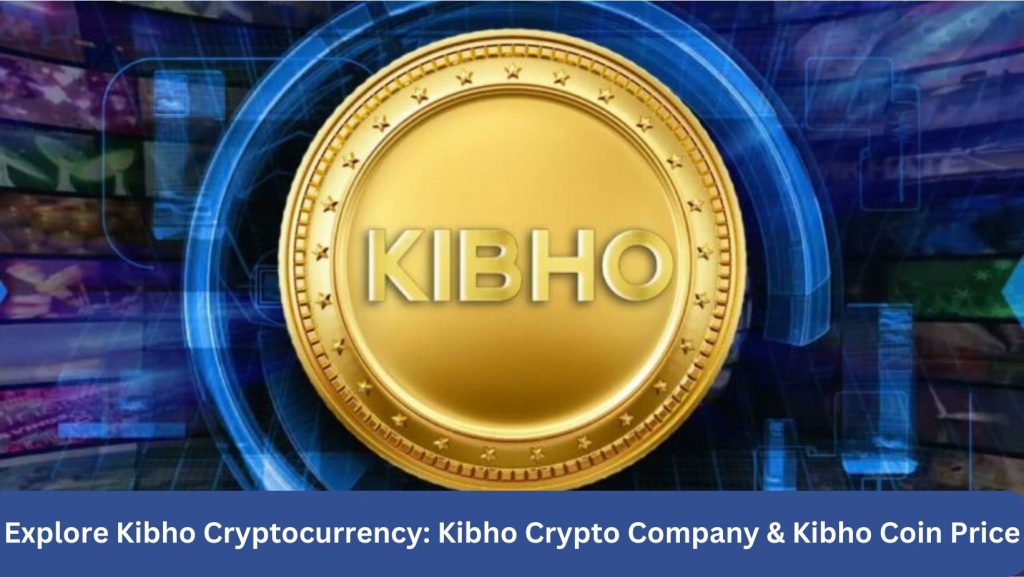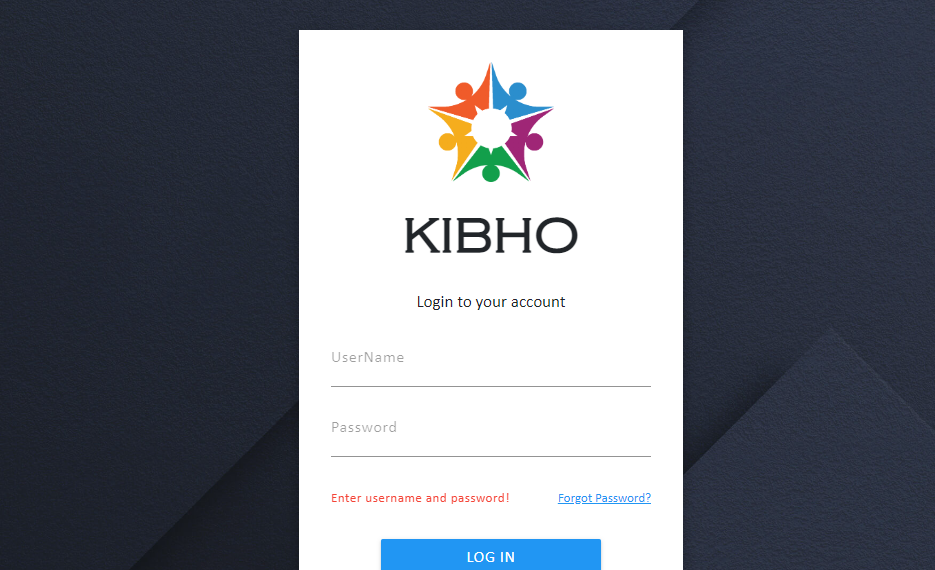Cryptocurrencies have exploded in popularity in recent years, with new digital coins and blockchain platforms launching on a regular basis. One relatively new cryptocurrency that has been gaining attention is Kibho.
Kibho aims to provide fast and affordable blockchain transactions through its unique consensus protocol. The company behind the cryptocurrency touts it as an eco-friendly and highly scalable option well-suited for global finance and payments.
In this comprehensive guide, we’ll explore everything you need to know about the Kibho cryptocurrency, including:
- Overview of the Kibho company and founders
- How the Kibho blockchain and KNH token work
- Real-world uses and applications for Kibho
- Current price and availability of KNH coins
- Future roadmap and growth potential for Kibho cryptocurrency
Whether you’re an investor looking to diversify into new crypto assets or simply want to learn more about this emerging player in the space, read on to uncover the key details on Kibho.

Kibho Crypto Company Background
Kibho is a cryptocurrency platform and network developed by Kibho Labs, a tech startup based in Switzerland. According to the company’s whitepaper, Kibho Labs was founded in 2018 by a team of engineers, researchers, and academics looking to solve some of the key issues facing major cryptocurrencies like Bitcoin and Ethereum.
The co-founders of Kibho Labs include CEO Xinxi Wang, an expert in distributed systems, cryptography and programming languages, and Chief Scientist Dr. Johann Polecsak, a pioneer in Byzantine fault tolerance research and asynchronous distributed systems.
The rest of the core Kibho team comprises academics from ETH Zurich, one of the world’s leading STEM universities, as well as Silicon Valley tech veterans. This combination of robust research and real-world development experience informs the technical architecture behind Kibho.
Key Issues Kibho Looks to Address
According to the whitepaper, the Kibho platform was designed to tackle three main limitations the founders saw in many first and second-generation cryptocurrencies:
Lack of Scalability – Major cryptos like Bitcoin and Ethereum can only handle a small number of transactions per second, limiting adoption for payments and finance.
Energy Intensity – Proof-of-work mining relies on vast amounts of computing power, making popular coins like BTC highly energy intensive.
Slow Finality – Waiting for several blockchain confirmations on Bitcoin or Ethereum leads to slow settlement times.
By overcoming these challenges, Kibho aims to provide a fast, affordable, and eco-friendly decentralized payments network suitable for everyday transactions.
How the Kibho Cryptocurrency Blockchain and KNH Token Work
To achieve its goals of scalability, speed, and sustainability, Kibho employs a unique hybrid consensus mechanism dubbed Amalgamated Consensus. This combines proof-of-stake (PoS) and a variation of Byzantine fault tolerance called asynchronous bipartisan Byzantine agreement (aBBA).
Here’s an overview of how the Kibho blockchain leverages these technologies along with the native KNH coin:
Kibho Blockchain Architecture
The Kibho blockchain is structured into three layers:
- Network Layer – Manages peer-to-peer connections and message propagation between nodes
- Consensus Layer – Where the aBBA consensus algorithm facilitates agreement on the true blockchain state
- Ledger Layer – Records approved transactions and state transitions on the immutable distributed ledger
This modular architecture allows different components of the network to be upgraded as needed without disruption.
Asynchronous Bipartisan Byzantine Agreement
The aBBA consensus mechanism is the novel invention enabling Kibho to achieve rapid transaction finality.
In typical BFT algorithms, nodes must coordinate in real-time to reach consensus. But Kibho’s aBBA allows nodes to vote asynchronously, with minimal communication overhead. This allows the network to scale transaction throughput almost linearly as more nodes join.
The “bipartisan” aspect also incentivizes nodes to act honestly through a flexible rewards structure.
KNH Kibho Cryptocurrency
The Kibho Network Token (KNH) is the native staking and governance token of the Kibho blockchain.
KNH allows token holders to earn rewards for staking their coins to help secure the network through aBBA consensus. It also confers voting rights to steer development of the platform.
The token economics are designed to incentivize long-term holding, with staking rewards highest for those who stake consistently for 6-12 months.
Kibho Cryptocurrency Use Cases & Applications
According to Kibho Labs, the combination of rapid throughput, low fees, and energy efficiency provided by the platform makes it well-suited for:
- Everyday payments – KNH can be used as digital cash for daily transactions and money transfers.
- Supply chain – Kibho can track assets and goods through production and distribution with its blockchain.
- Gaming – The speed and scalability of Kibho unlocks new possibilities in blockchain gaming and virtual worlds.
- DeFi – Decentralized finance apps can be built on top of the Kibho blockchain to offer lending, trading, staking, and more.
Kibho Labs is focused on tapping the massive payments industry in particular. The whitepaper cites a McKinsey estimate that global payments revenue totalled $1.9 trillion USD in 2019 alone. By capturing even a fraction of this market, the potential growth for Kibho is substantial.
The Kibho mainnet was launched in Q3 2022, allowing exchanges and partners to integrate the cryptocurrency and make it accessible for everyday users.
Kibho Coin Current Price & Availability
As a relatively new cryptocurrency, KNH has low market penetration and trading volumes so far. But it is available on a handful of cryptocurrency exchanges for those looking to invest in the project early.
Kibho Coin Price History
The price history for KNH dates back to late 2021 when it first became tradeable:
- ICO Sale: $0.08 (June 2021)
- All Time High: $3.24 (Nov 2021)
- Current Price: $0.82 (as of August 2023)
KNH saw significant volatility in late 2021 and 2022 as speculative interest surged and ebbed around new altcoins. It has since stabilized between $0.50 and $1.00 as the team continues developing the Kibho ecosystem.
Where to Buy Kibho Coin or Kibho Cryptocurrency
There are currently three exchanges where KNH can be purchased with fiat currencies like USD or stablecoins like USDT:
- KuCoin – Supports KNH/USDT and KNH/BTC pairs
- MEXC – Allows KNH purchases with USDT
- Gate.io – Offers spot and margin trading for KNH/USDT
Those holding major cryptocurrencies can also obtain KNH via decentralized exchanges like Uniswap. Look for KNH/ETH and KNH/WBTC pairs.
As a new project, liquidity on exchanges is currently low. But this could improve over time if Kibho gains wider adoption.

Storing KNH
As an ERC-20 token, KNH can be stored in any Ethereum-compatible wallet including MetaMask, Trust Wallet, and Ledger hardware wallets. Use caution when choosing a wallet and only download from legitimate sources.
Once the Kibho mainnet is fully operational, a dedicated Kibho wallet will be released allowing staking and other network functions.
Future Roadmap & Growth Potential of Kibho Cryptocurrency
Kibho Labs maintains an extensive roadmap to continue improving the ecosystem and boost adoption of KNH in the coming years.
Development Roadmap Goals
Key items on the Kibho roadmap include:
- Enhancing the core protocol with features like cross-chain bridges
- Expanding infrastructure with additional wallets, APIs, SDKs, etc.
- Onboarding more applications and use cases for payments, DeFi, crypto gaming, etc.
- Forming partnerships, integrations, and marketing programs to increase awareness
Growth Potential
If the team can deliver on its aggressive roadmap, Kibho could see significant growth. Its unique technical architecture offers tangible benefits over older cryptocurrencies in terms of speed, fees, and scalability.
Backing from prominent research partners like ETH Zurich also lends legitimacy to the project. And the core focus on payments gives Kibho a wide addressable market to expand into.
KNH has bullish long-term growth drivers. But as with any new crypto asset, investing carries substantial risk as well. Be sure to do your own due diligence before buying KNH.
Conclusion
Kibho aims to be the scalable, sustainable blockchain platform that finally brings cryptocurrencies into the mainstream for daily transactions.
Its combination of PoS staking and asynchronous BFT through aBBA provides rapid throughput and finality while remaining energy efficient. This unlocks a range of uses for payments, DeFi, gaming, supply chains, and beyond.
While still in the early stages, Kibho has strong technical foundations, an experienced team, and backing from top research partners. If execution goes smoothly, KNH could provide impressive returns for early investors as demand ramps up.
However, the roadmap is still contingent on ongoing development progress. There’s also competition from other next-gen blockchains tackling similar issues. But the novel aBBA consensus invention gives Kibho a distinctly promising head start.
For a closer look at this emerging crypto contender, be sure to check out the Kibho whitepaper, website, blog, and community channels. With crypto adoption still gaining momentum, the growth runway for innovative platforms like Kibho is long.



